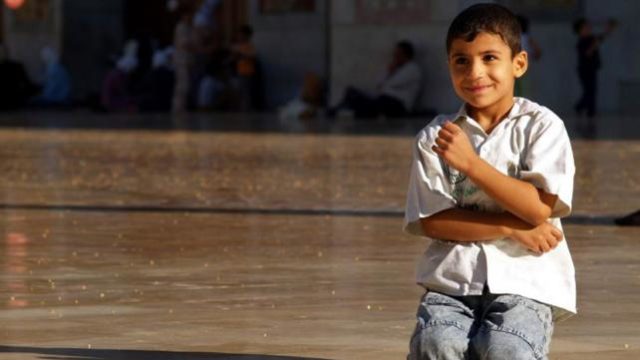Young Muslims and The Art of Dua

By Samana Siddiqui
Prophet Muhammad, peace and blessings be upon him, has said that Dua is the essence of worship (Tirmidhi). It is our direct line of communication to Allah. It can be done anytime, in any condition, anywhere.
Dua is not only for times of distress, but it is also for times of thankfulness, a way of showing that we love Allah and rely on Him more than anything, including our own efforts, to succeed in this life and the Next. This is why it is critical that we pass on the importance and beauty of Dua to the next generation of Muslims.
Here are some ways to start.
1. Explain why it’s important
While acts of faith like praying five times a day and fasting in Ramadan, something many youth already do, are important, Dua is essential as well. It is what binds and connects us to Allah in a very intimate way, reminding us that He already knows our thoughts, needs, feelings, struggles, and issues. But more importantly, Dua reminds us that He cares about us deeply and is always with us. When we walk to Him, He runs to us. Dua is the way we can make our relationship stronger with Allah, by turning to Him, opening up to Him, in a way we could never do even with our closest family members and friends.
2. Make it personal
Make the practice of Dua tangible by praying with young Muslims for personal situations. These can include making Dua in the car on the way to school to ace the SAT or final; for a friend who is being bullied; guidance on how to deal with a nasty clique at school, or ease in going through the college application process. The point is to make it as directly relevant to their life situation as possible.
3. Make Dua for the small stuff too
Don’t forget to make Dua with your young Muslim for those smaller things as well – their favorite team winning the game; finding the right dress; recovering from that cold; school being canceled due to inclement weather, etc. Allah is the Lord of all things, great and small.
4. Remind them that their Dua was accepted when the outcome is what they prayed for
It’s easy to offer a high five or an enthusiastic slap on the back when that A plus comes through, the friend stands up to the bully, the clique at school stops its antics, or the coveted college acceptance letter arrives. But don’t forget to also raise your hands together and sincerely thank Allah for the Dua being accepted.
Also remind them of this Hadith: “Whoever wants that Allah should respond to his Duas at the time of his calamities, should engage in many Duas at the time of his happiness” (Tirmidhi).
5. Explain why Duas are not always accepted
Many, if not most times, our Duas are accepted. But when they aren’t, we need to remind youth not to become angry with Allah, nor to become impatient. Rather, we should give them this advice: Prophet Muhammad, peace and blessings be upon him, said, “No one makes a Dua without Allah giving him what he asks for, or keeping away from him a similar amount of evil, provided he does not ask for something sinful, or for breaking family ties” (Tirmidhi).
6. Highlight times when Dua is more likely to be accepted
While Dua can and should be made any time, there are some times when it is more highly recommended. These include right before breaking the fast, when it rains, when a person is sick, while traveling, etc. If you or they are in these situations, encourage your young Muslim to join you in making Dua, either individually or together.
7. Encourage them to text Duas to each other for family and friends
If they don’t already, openly encourage youth, either during family discussions or in Khutbas and community activities, to text Duas to each other for family and friends. For example, if someone’s mother is about to undergo surgery, encourage their kids to ask others via texting to pray for her.
8. Have them start a Dua circle on Facebook
Encourage the youth to start a Dua circle for a particular situation or person on Facebook. They can establish a group for this purpose and call it “Dua Circle for (blank)”, where updates can be posted, but more importantly, members can share personal, heartfelt Duas of their own with everyone else.
9. Make Dua as a family, after collective prayer, take turns making Duas of concern
After collective Salah as a family, especially on a weekend or Friday night when things are less rushed, sit together as a family and take turns making Duas for each other and for anything or anyone you all feel are in need of it.
“Playful boy in the expansive courtyard of the Great Umayyed Mosque of Damascus, Syria” by James Gordon from Los Angeles, California, USA – Playful boy in the expansive courtyard of the Great Umayyed Mosque of Damascus, Syria. Licensed under Creative Commons Attribution 2.0 via Wikimedia Commons


